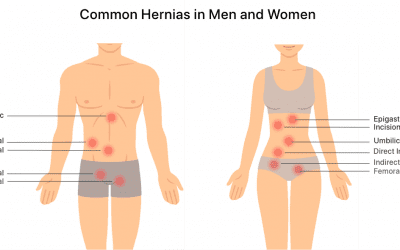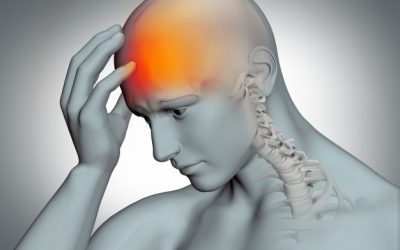NUTRITIONAL NEEDS DURING PREGNANCY

“HEALTHY BODIES MAKE HEALTHY BABIES, SO YOU HAVE NOTHING TO LOSE!”
As you know, your body goes through lots of physical and hormonal changes during pregnancy. To fuel
yourself and your growing baby you’ll need to make great food choices from a variety of sources.
Eating a healthy, balanced diet will help feel good and provide everything you and your baby need. The food
you eat is your baby’s main source of nourishment, so it’s critical to get all of the nutrients you need.
INCREASED NUTRIENTS:
No surprise here: Your body has increased nutritional needs during pregnancy – you’re feeding a whole new
person! Although the old adage of “eating for two” isn’t entirely correct, you do require more micronutrients
and macronutrients to support you and your baby.
Micronutrients are dietary components, such as vitamins and minerals that are only required in relatively
small amounts. Macronutrients are nutrients that provide calories, or energy. We’re talking carbohydrates,
proteins, and fats. You will need to eat more of each type of nutrient during pregnancy.
Here are some general guidelines on a few important nutrients that will need to be adjusted based on you
needs:
| NUTRIENT | DAILY REQUIREMENTS FOR PREGNANT WOMEN |
| CALCIUM | 1200 Milligrams (mg) |
| FOLATE | 600-800 micrograms (mcg) |
| IRON | 27 mg |
| PROTEIN | 70-100 grams (g) per day, increasing each trimester. |
Most pregnant people can meet these increased nutritional needs by choosing a diet that includes a variety
of healthy foods such as:
- PROTEIN
- COMPLEX CARBOHYDRATES
- HEALTHY TYPES OF FAT LIKE OMEGA – 3s
- VITAMINS AND MINERALS
WHAT AND HOW MUCH TO EAT?
Eat a wide variety of foods to provide everything you and your baby need. It’s not that different from a
regular healthy eating plan – just amplified a bit.
In Fact, current guidance is to continue to eat as you normally would in your first semester, then increase
350 calories daily in your second trimester and 450 calories daily in your third trimester as your baby grows.
As often as you can, avoid overly processed junk foods, chips, and soda, for example, contain no nutritional
value. You and your baby will benefit more from fresh fruits, vegetables, or lentils AND SPROUTS and lean
protein, such as chicken, fish, beans.
PROTEIN:
Protein is critical for ensuring the proper growth of a baby’s tissues and organs, including the brain. It also
helps with breast and uterine tissue growth during pregnancy. It even plays a role in your increasing blood
supply, allowing more blood to be sent to your baby. Your protein needs increase during each trimester of
pregnancy. Research suggests that protein intake during pregnancy should be even higher than some current
recommendations. It’s time to add a protein supplement in the form of protein powder to be consumed with
milk if u are a vegetarian with not enough protein intake.
You will need to eat about 70 gm of protein a day, depending on your weight and which trimester you are
in. Talk to your doctor to see how much you specifically need.
Good sources of protein include:
- Lean meat
- Chicken
- Salmon
- Dals and legumes, sprouts
- Nuts
- Peanut Butter
- Cottage cheese
CALCIUM:
Calcium helps to build your baby’s bones and regulates your body’s use of fluids. Pregnant women need
1000 mg of calcium, ideally in two doses of 500 mg per day. You will likely need additional calcium to
supplement regular prenatal vitamins.
Good Sources of calcium include:
- Milk and milk products
- Yogurt
- Cheese
- Low-mercury fish and seafood, such as salmon, shrimp, catfish, and canned light tuna
- Calcium-set tofu
- Dark green, leafy vegetables
FOLATE:
Folate, also known as folic acid, plays an important part in reducing the risk of neural tube defects. These
are major birth defects that affect the baby’s brain and spinal cord, such as spina bifida and anencephaly.
When you are pregnant, the AMERICAN COLLEGE OF OBSTETRICS AND GYNECOLOGY (ACOG) recommends
600 to 800 mcg of folate. You can get folate from these foods:
- Nuts
- Dried beans and lentils
- Eggs
- Nuts and peanut butter
- Dark Green, Leafy vegetables
IRON:
Iron works with sodium, potassium, and water to increase blood flow. This helps ensure that enough oxygen
is supplied to both you and your body. Iron is essential for the body to produce more blood to supply oxygen
to the baby. In the case where the mother is not consuming sufficient iron, the mother could suffer from iron
deficiency anemia, resulting in fatigue, and increasing the risk of having a premature birth.
You should be getting30 mg of elemental iron per day, preferably alongside some vitamin C to increase
absorption. Good Sources of this nutrient include:
- Dark green, leafy vegetables
- Citrus fruits
- Enriched bread or atta
- Lean meat and poultry
- Eggs
- Jaggery
OTHER CONSIDERATIONS:
Other nutrients are necessary to keep you thriving during your pregnancy like choline, salt, and B vitamins.
Aside from eating well, it’s important to drink at least eight glasses of water each day and to take prenatal
vitamins. It’s difficult to obtain sufficient amounts of certain nutrients, including folate, iron, and choline from
food alone.
Make sure to speak with your doctor about which prenatal vitamins you should take.
CRAVINGS AND FOOD AVERSIONS:
During pregnancy, you may experience aversions to particular foods, meaning you won’t like the smell or
taste. You may also have cravings for at least one type of food.
– PREGNANCY CRAVINGS:
You might start aching for a SAVOURY FOOD, SWEETS, Chinese food, pickles, or a strange food
combination like classic pickles and ice cream. It’s unclear why women develop food cravings or
aversions during pregnancy. However, researchers believe hormones play a role.
It’s fine to give in to these cravings sometimes, especially if you crave foods that are a part of a healthy
diet. However, you should try to limit your intake of junk food and processed foods.
– PICA:
Pica is a disorder that causes cravings for items that contain no nutritional value. Pregnant women
with pica may want to eat clay, cigarette ashes, or starch, among other strange substances.
When a woman has pica during pregnancy, it may indicate a lack of a specific vitamin or mineral. It’s
important to notify your doctor if you crave non-food items or have eating non-food items. Eating
such items can be dangerous for you and your baby.
Foods to avoid:
Pregnant women should not eat unwashed fruits and vegetables, again because of the potential
for consuming harmful bacteria.
Excess caffeine should also be avoided since it can cross the placenta and the effects on the
The baby is not well known.
Under no circumstances should a pregnant woman consume alcohol, as no study has found a
level of alcohol that has been proven to be safe during pregnancy. Alcohol increases the risk of
miscarriage and stillbirth. It also can cause fetal alcohol syndrome which can result in the
development of intellectual disabilities as well as facial deformities.
Smoking should also be avoided before, during, and after pregnancy, as smoking during any of
these periods can negatively affect the baby, as well as the mother. Smoking during pregnancy
can result in many detrimental health outcomes including premature birth, fetal death, cesarean
section (which can cause maternal hemorrhage), and more. It has also been found to increase
the risk of sudden infant death syndrome, birth defects such as altered brainstem development
and lung structure as well as cerebral palsy.
HEALTHY WEIGHT GAIN DURING PREGNANCY:
If you are concerned about weight gain, don’t stress too much. Some weight gain is normal during pregnancy.
The extra weight provides nourishment to the baby. Some of it is also stored for breastfeeding after the baby
is born.
Women gain an average of 11kg to 15 kg during pregnancy. It’s normal to gain less weight if you start out
with more weight or to gain more weight if you were underweight before pregnancy.
You can speak with your doctor about the appropriate amount of weight for you to gain during your
pregnancy. The chart below provides some general guidelines, though everyone is different.
RECOMMENDED WEIGHT GAIN DURING PREGNANCY WITH ONE BABY
| STARTING WEIGHT | BODY MASS INDEX | SUGGESTED WEIGHT GAIN |
| Underweight | <18.5 | 28 TO 40 lbs./12.7 to 13.6 kg |
| Average Weight | 18.5 TO 24.9 | 25 TO 35 lbs./11kg to 15kg |
| Over Weight | 25 TO 29.9 | 15 to 25 lbs./6kg to 11kg |
| Obese | >30.0 | 11 TO 20 lbs./5kg to 9 kg |
Do not worry too much about the number on the scale. Instead of focusing on your weight,
concentrate on eating a variety of nutritious foods. Healthy eating is incredibly important and dieting
to lose weight or prevent weight gain can be harmful to you and your baby.
– Drinking water is important as your blood volume increases during pregnancy. Adequate hydration
may also help prevent constipation and urinary tract infections.
Take small frequent meals throughout the day.
Meal 1: Early Morning Nibble
Get in a light snack within a few moments of waking up. A seasonal fruit, Dry fruits, homemade juice,
a milkshake or just a plain glass of milk is perfect and light enough on your tummy after a long night
of slumber.
Meal 2: Breakfast
In India, we’re spoilt for choice with the number of local, nutritious breakfast options available. Kick
start your first solid meal with veggie-rich sevai, upma or poha, thepla, oatmeal, multigrain toast with
egg, parathas, or chillas stuffed with veggies, or any other healthy option you’re used to having. Tuck
into a hearty portion of fruit to complement your morning meal.
Meal 3: Mid-Morning Snack
Keep your belly busy between breakfast and lunch with a light and wholesome appetizer. Whip up a
veggie or chicken soup, a fruity smoothie, a serving of buttermilk, or something equally appetizing
and nutritious.
Meal 4: Lunch
When it comes to lunch, go with what you’re used to eating, but remember to balance your meal with
various food groups. A roti- or rice-based meal can give you a healthy filling of carbs, while dal, fish or
chicken can give you protein. Serve yourself a generous portion of veggies to seek those essential
vitamins and minerals, and a cooling bowl of curd to round off your meal.
Meal 5: Teatime snack
Silence your rumbling tummy at teatime with a little something. Mirror your breakfast options
with idli, halwa, sevai or poha. Or opt for something a little more snacky, such as a steamed sprout-
peanut chaat, a soup, or a grilled veggie sandwich. Or, if you can’t down a solid mini-meal at this hour,
go for something a little lighter, like fresh coconut water, a homemade juice, a milkshake or a
smoothie.
Meal 6: Dinner
Make dinner a lighter version of lunch, with the same food groups and meal options. A heavy belly
just before bed can cause discomfort, and it’s wise to scale down on your portions as you progress
through the day. Like lunch, have carbs in the form of rice, roti or paratha, khichdi, pulao and
include dal or meat to add some protein. Cool down with a salad and curd (or buttermilk) and of
course do not forget the veggies on the side.
your pregnancy menu should be an extension of your existing diet, so if you’re a true-blue South
Indian, get your serving of veggie sambar and rice (vitamins, protein, and carbs, check). If you’re from
the North, embrace your parathas, curd, and unsalted butter (say hello to carbs, calcium, protein, and
fats). Maharashtrians, rejoice with koshimbir and masala bhat (yes to vitamins and carbs), and for us
Gujaratis, with dhokla, khandvi, and kadhi (rich in fiber and protein).
Do I need to take supplements to complement a healthy diet in pregnancy?
Eating a varied and healthy diet is the best way to get all the nutrients you and your baby need. Often, it’s
also easier for your body to absorb vital nutrients through food, rather than from supplements.
However, even the healthiest of diets needs a boost from supplements during pregnancy. So do not
discontinue the supplements your doctor has prescribed.
In the first trimester, all pregnant women need to take a supplement of folic acid. In the second and third
trimesters, your doctor will ask you to take supplements of iron and calcium. How often you will need
calcium and iron pills will depend on your health history and your diet preferences, such as if you are a
vegetarian or non-vegetarian.
HEALTHY EXERCISE:
Besides eating a nutrition-focused diet, exercising during pregnancy can help you manage your health and
de-stress. Swimming and walking are good choices to get moving. Choose an activity that you enjoy.
Avoid any extreme sports or contact sports, such as rock climbing and basketball. Staying safe while getting
your move on is ideal. Walking is in fact the best and safest exercise for all.
If You did not exercise before your pregnancy, start out slowly and don’t overdo it. Consider looking into
some exercises or classes that focus specifically on pregnant people for extra support. It’s also important to
drink plenty of water so that you don’t get dehydrated. Make sure to talk to your doctor before you start a
new exercise routine.
DR SNEHAL RAVISAHEB
OBSTETRICIAN AND GYNECOLOGIST
BIMS HOSPITAL
BHAVNAGAR – GUJARAT
FOR APPOINTMENT: 0278-6644446 / 6644447
Departments
- Department Of Cardiology
- Neurology
- Nephrology
- Urology
- Spine Surgery
- Orthopaedics/ Trauma
- General Medicine
- General and Laparoscopic Surgery
- Gastrointestinal Surgery
- Bariatric And Diabetes Surgery
- Intensive Care/ Critical Care
- Pulmonology
- Obstetrics and Gynecology
- Oral and maxillofacial surgery
- Dental and Implant surgery
- Neuro Surgery
- Radiology
- Physiotherapy






